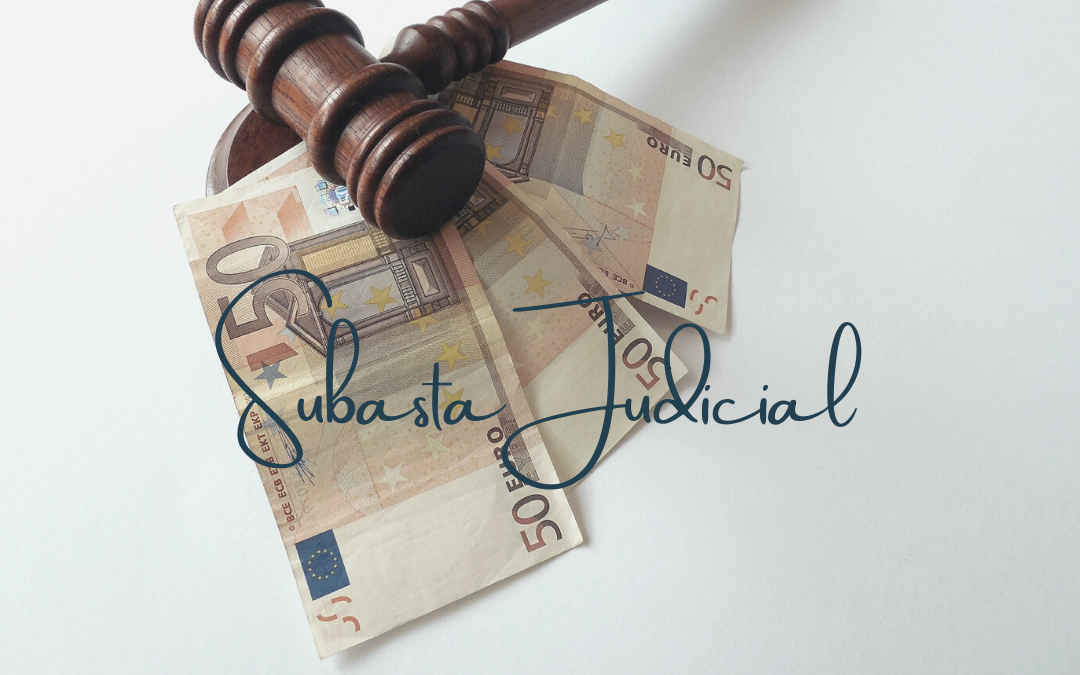The judicial auction

The judicial auction is a procedure of forced disposal of assets, ordered by court judgment, and allows a debtor to pay the amount of the debt claimed. Different types of goods can be auctioned: real estate, movable goods (jewelry, paintings, machinery, etc.), vehicles, as well as any other kind of goods or rights that have economic value.
It is regulated in the Civil Procedure Law (LEC), contained in Title IV of the monetary executions, within the enforcement procedures, having a specific regulation depending on whether it is an auction of movable or immovable property.
Since the entry into force of Law 19/2015, of July 13, on administrative reform measures in the area of the Administration of Justice and Civil Registry, all auctions are carried out telematically through the single portal for judicial and administrative auctions in the State Agency Official State Gazette (BOE).
Procedure
The following conditions must be met for the judicial auction to take place:
- The existence of a final judicial decision for the execution of the debt
- The appraisal of the foreclosed assets (the valuation of the assets is called appraisal).
- That the value of assets is sufficient to satisfy the debt claimed.
In the event that the seized goods are movable goods:
- Formation of batches of the seized assets by the Lawyer of the Administration of Justice, giving a hearing to the interested parties (creditor and debtor) so that they may present their arguments.
- Valuation of the lots by a specialist expert appointed by the Court, again the parties will be given a hearing so that they may present their arguments in relation to the valuation made in the expert’s report.
In the event that the seized assets are real estate:
- Certification of the corresponding Property Registry with the ownership of the domain and other real rights of the encumbered property or right.
- Certification of the charges and encumbrances that weigh on the property or, in its case, that it is free of charges.
- The valuation of the real estate will be made by an expert appraiser, and will be the result of deducting from its appraisal the amount of the previous charges and rights that have preference according to the registry certification of ownership charges.
- If the value of the charges or encumbrances equals or exceeds the value determined for the property, the Justice Administration Lawyer will suspend the execution on that property.
Call for judicial auctions:
- Announcement and publication of the auction in the BOE auction portal (start and end date, amount claimed, lots, certification of charges, appraisal value, expert opinion, etc.).
- Reception of bids and offers from interested parties for a period of 20 days.
- Completion of the auction and award to the highest bidder, and return of security deposits.
Particularities:
If, for example, no one appears at the auction and only the creditor participates, the auction will be declared deserted and the creditor may request the award of the auctioned property. However, the price you will be able to ask for it will depend on the type of asset being auctioned:
- If the property is real estate that constitutes the debtor’s habitual residence, he cannot request the adjudication for less than 70% of the value of the property for auction purposes. If the amount owed for all items is less, you may request it for 60%.
- For other types of real estate you may not request adjudication for less than 50% of the value, unless the amount owed is less.
- If a movable asset has been auctioned, the creditor may not request the award in any case for less than 30% of the value even if the amount owed to him is less.
- If the creditor does not request the adjudication, the seizure of the property will be lifted.
It should be noted that in the event that other bidders participate in the auction, the Law allows the Counsel for the Administration of Justice not to approve the sale of the real estate if less than half of its value is offered (or 60% or 70% if it is the debtor’s habitual residence) and if it is movable property, when less than 30% of the value of the property is offered for auction purposes.
To participate in an auction it will be necessary:
- Identify yourself sufficiently.
- Declare that the general and particular conditions of the auction established in the law and in the corresponding edict are known.
- Present a receipt certifying that 5% of the appraised value of the assets to be auctioned has been deposited in the deposit and consignment account of the court, or that a bank guarantee has been provided for the same percentage, which should be notarized.



